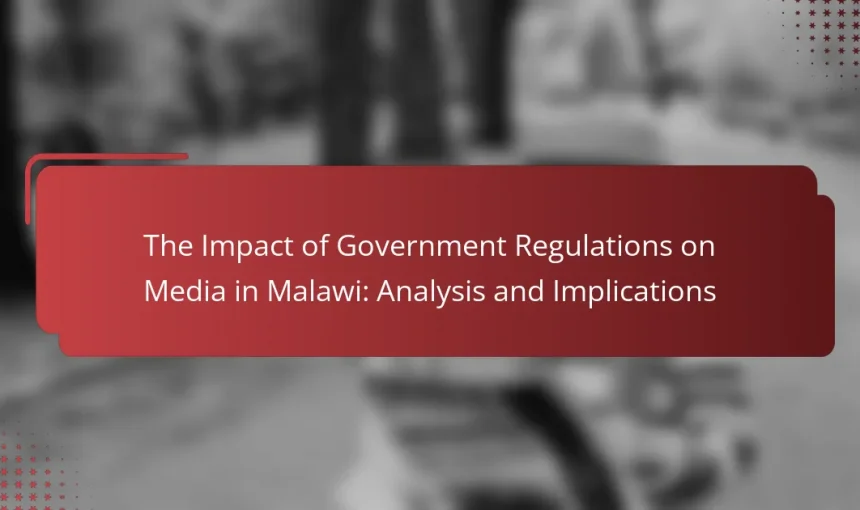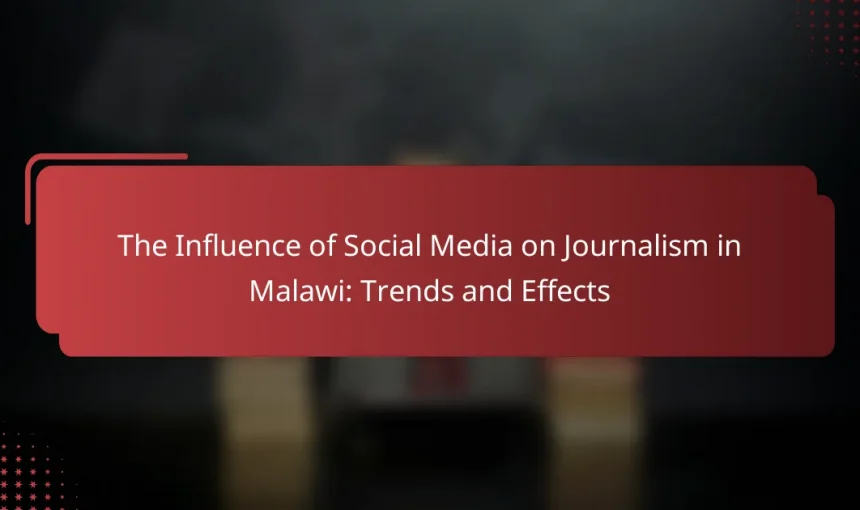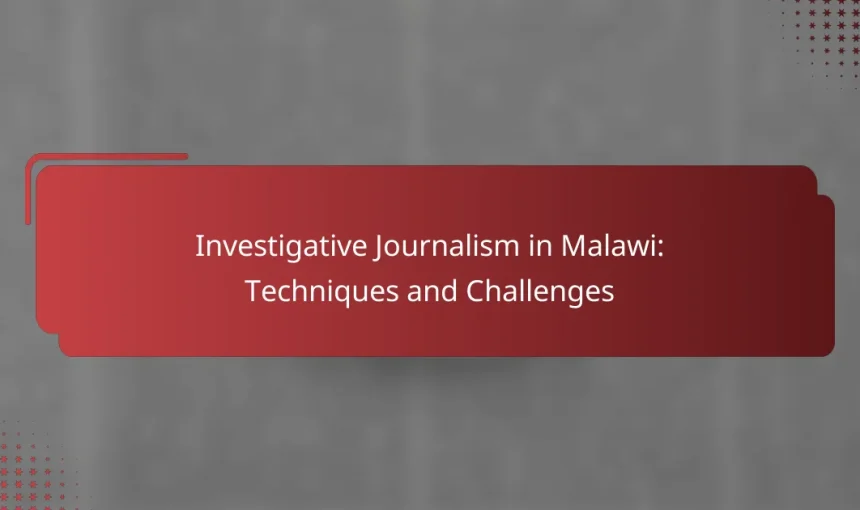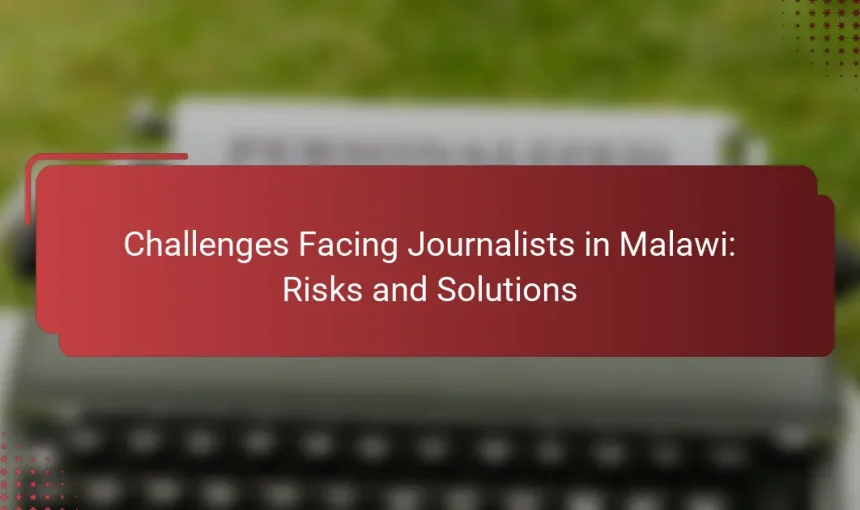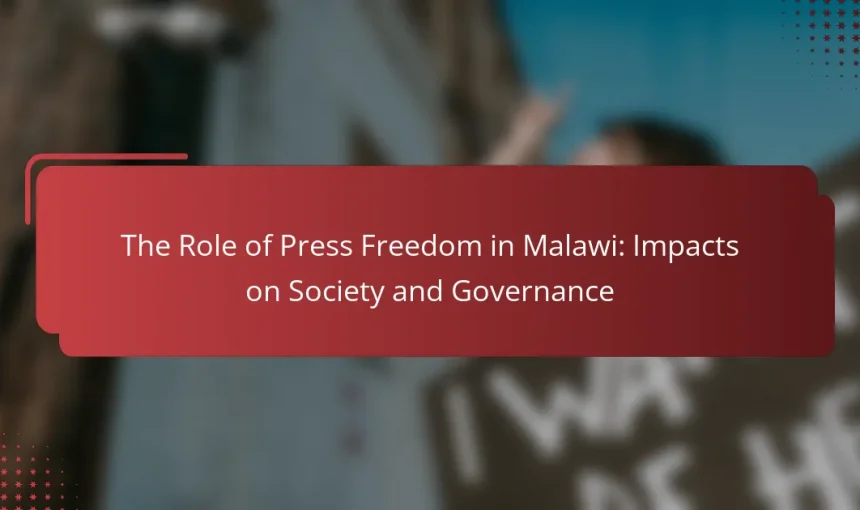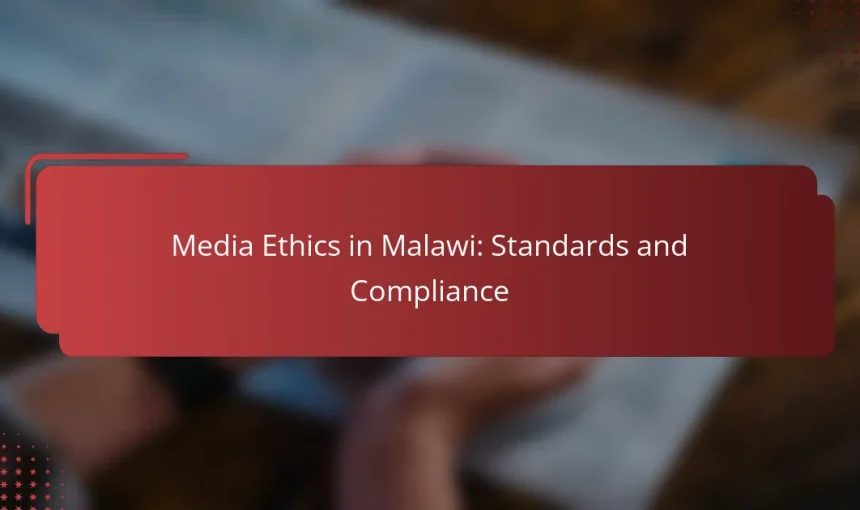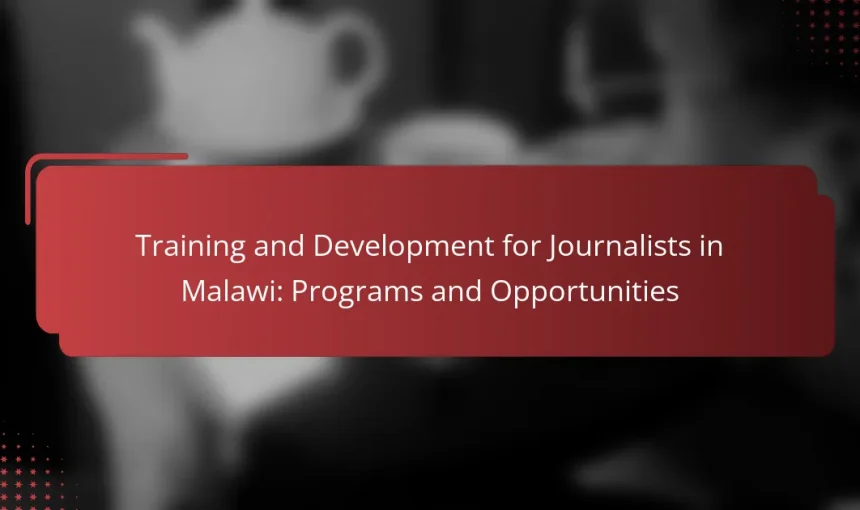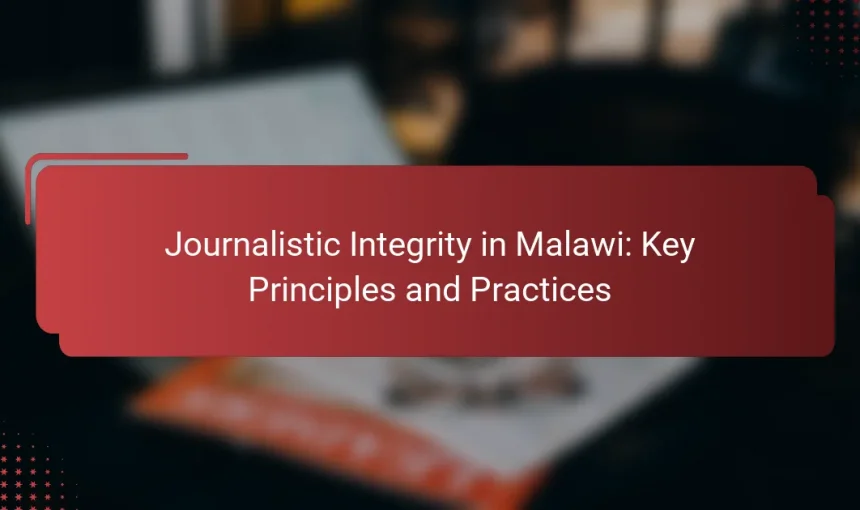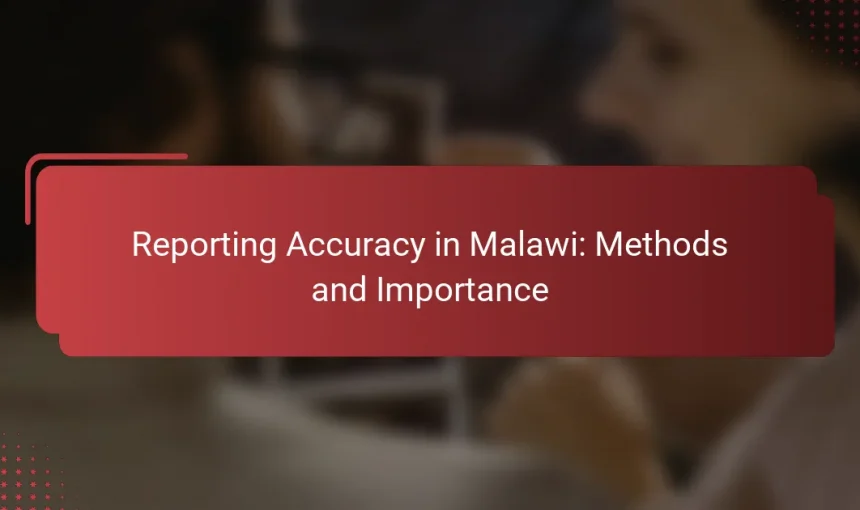The article examines the impact of government regulations on media in Malawi, focusing on key legislation such as the Communications Act and the Access to Information Act. These regulations govern broadcasting, telecommunications, and public access to information, balancing media freedom with national security and public order. The Malawi Communications Regulatory Authority (MACRA) enforces compliance, which […]
Social media has a profound influence on journalism in Malawi, reshaping news dissemination and audience engagement. Platforms such as Facebook and Twitter enable journalists to share updates in real time, enhancing public awareness of current events while also presenting challenges like misinformation. The rise of citizen journalism allows ordinary individuals to report news, impacting traditional […]
Investigative journalism in Malawi is essential for uncovering hidden truths and exposing wrongdoing, significantly contributing to transparency and accountability in governance. Journalists focus on critical issues such as corruption, human rights abuses, and environmental concerns, employing techniques like document analysis, interviews, field research, and data journalism. Despite facing challenges such as government censorship, threats to […]
Community journalism in Malawi encompasses local media initiatives that empower citizens to report news and issues pertinent to their communities. This form of journalism enhances democratic participation, promotes transparency, and strengthens local governance by addressing concerns often overlooked by mainstream media. Best practices include fostering local engagement, ensuring accurate reporting, and utilizing local languages for […]
The article addresses the challenges faced by journalists in Malawi, highlighting issues such as government censorship, limited resources, and threats to safety. It outlines how these challenges restrict press freedom and hinder investigative journalism, with journalists experiencing harassment and intimidation, particularly from political entities. The article also discusses potential solutions, including enhancing legal protections, providing […]
Press freedom in Malawi is essential for promoting democracy, accountability, and informed citizenry. It enables the dissemination of diverse opinions and serves as a watchdog against government corruption and abuse of power. Despite facing challenges such as government censorship and intimidation, journalists in Malawi continue to advocate for transparency and uphold the right to freedom […]
Media ethics in Malawi are governed by key principles such as truthfulness, accuracy, fairness, and accountability, which are essential for maintaining public trust. The Malawi Communications Regulatory Authority (MACRA) and the Media Council of Malawi enforce these ethical standards, ensuring that journalists report facts without distortion and correct errors promptly. The Media Council’s Code of […]
Training and development programs for journalists in Malawi are essential initiatives aimed at enhancing the skills and knowledge of media professionals. These programs, offered by organizations such as the Media Institute of Southern Africa (MISA), focus on critical areas including investigative journalism, digital media, and media ethics. By improving reporting quality and ethical standards, these […]
Journalistic integrity in Malawi encompasses key principles such as accuracy, fairness, accountability, and independence. These principles are essential for fostering public trust in the media and align with the guidelines set by the Malawi Communications Regulatory Authority. The article outlines best practices that support these principles, including adherence to ethical standards, fact-checking, and transparency, as […]
Reporting accuracy in Malawi pertains to the precision and reliability of data collected across various sectors such as health, education, and governance. This accuracy is vital for informed decision-making and effective resource allocation. Challenges to achieving high reporting accuracy include data collection errors, inadequate training, poor infrastructure, and political influences that can distort data interpretation. […]
